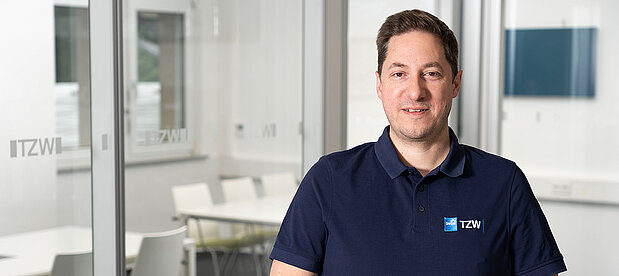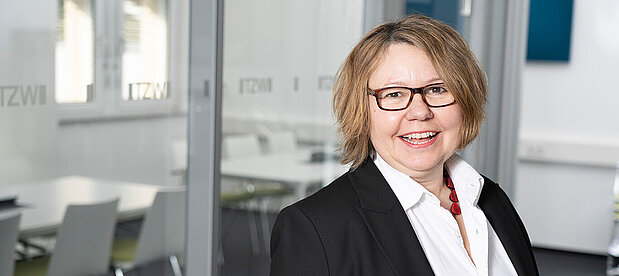


![[Translate to English:] Prüfstelle-Produktprüfung_Teststand Test centre and product testing](/fileadmin/_processed_/0/9/csm_TZW-Karlsruhe_Pruefung_Geraete-Teststand_377188946c.jpg)

















A wide variety of materials and products are used in water supply, drinking water installation, firefighting and in the water and waste water industry. For many of these products there are national and international standards, that specify requirements for the functionality and safety of the products. The quality of materials for drinking water are also subject to strict requirements to ensure that human health is not affected or that the odour or taste of the water are not changed.
We offer our customers tests pursuant to more than 200 different product standards, for which we are accredited according to DIN EN ISO 17025. Each product test, the detailed testing procedure and set up will be discussed and specified individually with our customers. In addition we develop customized test programmes for products that are not yet standardised or develop pre-standardisation projects with our customers. In these activities, TZW works closely with DVGW CERT GmbH as well as with other international certification companies. Furthermore, TZW is active in national and international standardisation work.
Hygienic and microbiological tests according to KTW-BWGL and other UBA documents
We offer hygienic suitability tests of products and materials in contact with drinking water in accordance with the evaluation criteria and guidelines of the German Environment Agency UBA (e.g. KTW-BWGL, Enamel and Ceramics BWGL, Silicone transitional recommendation). In addition, hygiene tests are carried out pursuant to other European and international standards. This includes testing the metal release of metallic materials as well as testing cement-bound materials, thread-cutting compounds, solders, fluxes and cleaning agents.
On 21 March 2019, the UBA published the evaluation criteria for plastics and other organic materials in contact with drinking water (KTW-BWGL). The KTW-BWGL replaces gradually the previous KTW guidelines for organic materials. Since 21 March 2021 it is legally binding for plastics, organic coatings and lubricants. In March 2022 elastomers and thermoplastic elastomers have also been included in the KTW-BWGL. The KTW-BWGL will become legally binding for these materials as of 01 July 2026. We have published further information in a separate article (link to article) An information sheet (in English) shows the test procedure within the KTW hygiene certification (link to information sheet).
The test centre at TZW is accredited as a test centre according to DIN EN 17025 for testing according to the KTW-BWGL. In addition, it provides inspectors who are commissioned by the certification body to carry out the technical audits as part of the initial inspection of the plant and the annual monitoring audits.
The test centre is also prepared for testing in accordance with future EU regulations.
Flyer: TZW SHORT INFO - The New EU-Regulation for Materials and Products in Contact with Drinking Water (pdf file)
Contact:
Dr. Johannes Ruppert Tel. +49 721 93163-51, Send e-mail
Pipes and fittings in water distribution and drinking water installations
In addition to a wide variety of product groups such as shut-off valves, tapping bridges, hydrants, check valves, membrane expansion vessels, water meters and sanitary fittings, drinking water heaters, devices for protecting drinking water, and emergency safety showers are also tested according to international standards. Our test range also covers corrugated pipes, pressure-resistant hose lines as well as pipes and pipe connectors. Resistance coefficients (zeta values), which we determine for every component, play a key role in proper planning of a drinking water installation.
Contact:
Stefan Zimmer Tel. +49 721 93163-66, Send e-mail
Systems and equipment for drinking water treatment
Due to the clear comfort trend of individual post-treatment of drinking water there is an increasing demand for the testing of softener, dosing devices and limescale protection systems. These are tested at TZW according to current European standards. This also includes treatment systems for canteen kitchens. In addition we also offer solutions for individual test programmes for products, processes and methods that have not yet been standardised in order to test them for technical and hygienic safety.
Contact:
Heiko Delong Tel. +49 721 93163-20, Send e-mail
UV disinfection devices, UV sensors and UV lamps
In current practice, only mercury-vapour lamps are used to disinfect water. A distinction is made between UV low-pressure lamps and UV medium-pressure vapour lamps. We have test setups that allow us to validate UV devices with a throughput of up to 3,500 m3/h using various test organisms. In addition, our optoelectronic equipment enables us to conduct ageing tests on UV lamps, their characterisation and the qualification of UV sensors. In future, UV LED technology will also be further developed for use in water disinfection, which is why we are already offering specific testing programmes and approaches.
Contact:
Dr. Jutta Eggers, Tel. +49 721 93163-52, Send e-mail
Fire-fighting equipment and fire-fighting facilities
Our testing services also encompass products from fields of work adjacent to drinking water. This includes, for example, the entire extinguishing water sector. Thus the essential products from the fire brigade are tested. These are e. g. steel pipes, couplings, suction connections, adapters and manifolds. Extinguishing water connection systems as well as filling and drainage stations or direct connection points are also tested.Contact:
Contact:
Stefan Zimmer Tel. +49 721 93163-66, Send e-mail
Contact


Projects
The Project aimed on a general understanding of the effects of increased water temperatures on resilience and vulnerability of microbial communities…
Read moreThe aim of the project was the holistic and systematic investigation of drinking water installations on the lab scale, in pilot plants and in field…
Read moreThe objective of the DVGW-funded study on the occurrence of black biofilms on drinking water taps was to assess the presence and relevance of black…
Read more